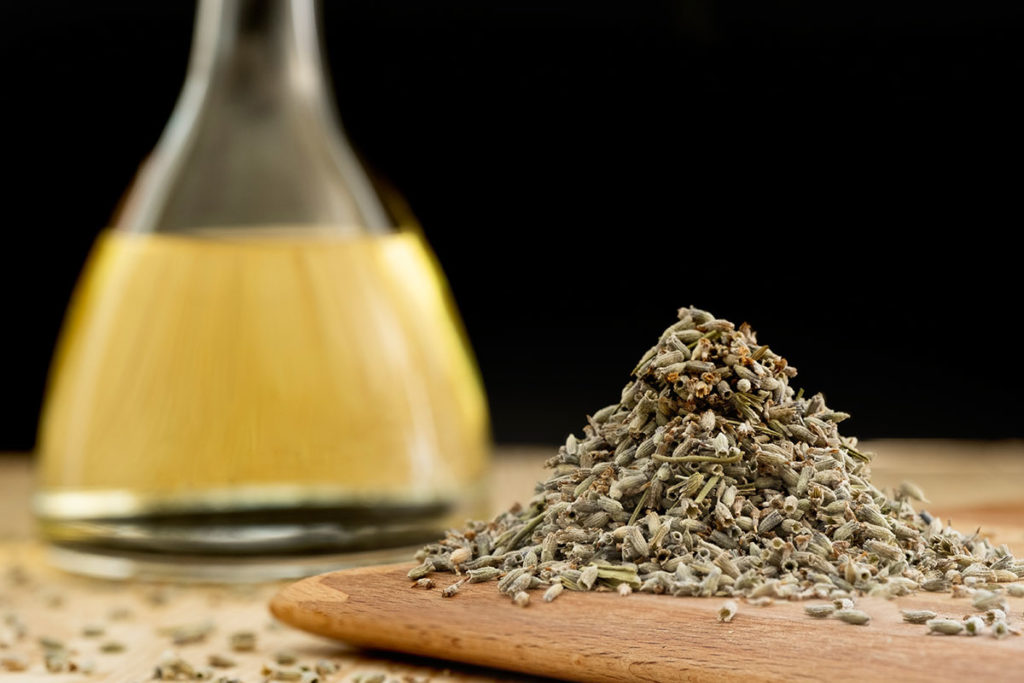Lavender Essential Oil
Lavender Essential Oil: Turkey’s Role in Sustainable Cultivation and Global Production
Lavender essential oil, known for its captivating aroma and diverse industrial uses, is one of the most recognized botanical oils worldwide. Traditionally associated with regions in Southern Europe, the production landscape has significantly expanded in recent decades. Among the emerging leaders, Turkey has gained increasing attention for its lavender oil cultivation, thanks to favorable natural conditions, experienced growers, and an expanding export infrastructure. As international interest in plant-based and eco-friendly products continues to grow, Turkey’s position in the global lavender market is becoming more prominent each year.
The western and southwestern parts of Turkey, particularly areas like Isparta and Burdur, are now renowned for their large-scale lavender fields. These regions boast a Mediterranean climate that provides the necessary warmth and dry conditions lavender requires to thrive. The long, sunny summers and cool but mild winters support consistent flowering, which directly influences the aromatic properties of the oil. Turkish lavender is often praised for its strong fragrance, visual purity, and reliable yields.
One of the most significant advantages of lavender cultivation in Turkey is the country’s dedication to traditional agricultural methods. Many lavender farms in rural Turkish regions are family-run and operated with a mix of generational experience and local knowledge. Farmers in these areas are deeply connected to their land, often using manual harvesting techniques that reflect sustainable and respectful approaches to nature. While mechanization has gradually been introduced for efficiency, the emphasis on preserving soil health and minimizing environmental impact remains a core principle of cultivation.
The rise of lavender cultivation in Turkey has been fueled by increasing domestic and global demand. Lavender essential oil is widely used in perfumery, aromatics, and various consumer goods. This demand has led to the expansion of farmland dedicated to lavender, with many Turkish provinces supporting small-scale growers through community-based cooperatives and government-backed agricultural development initiatives. These efforts aim to encourage rural development, job creation, and ecological responsibility.
Processing lavender into essential oil in Turkey typically involves steam distillation, a method that has become common in both traditional and commercial operations. Turkish producers focus heavily on maintaining consistent quality by following standardized practices throughout harvesting and distillation. While the use of high-end equipment has grown in recent years, it has been paired with the preservation of native knowledge, creating a balanced and authentic production model.
From an economic standpoint, lavender essential oil has become a valuable source of income for rural Turkish communities. In regions where industrial opportunities are limited, lavender farming offers a sustainable livelihood and stimulates local economies. In particular, the tourism sector has embraced lavender cultivation, with “lavender tourism” emerging in provinces such as Isparta. Visitors flock to the region each summer to witness the vivid purple fields in full bloom, participate in harvest events, and learn about the oil extraction process. This agricultural-tourism blend supports both cultural exchange and economic diversification.
Turkey’s growing reputation as a lavender oil exporter is also supported by its strong logistics and trade infrastructure. The country’s proximity to European, Middle Eastern, and Asian markets gives it a geographical edge in global distribution. Turkish lavender oil has become increasingly visible in international exhibitions and marketplaces, helping raise awareness of the product’s unique origins and quality.
Environmental considerations also play a crucial role in lavender production in Turkey. The country is taking steps to encourage eco-conscious farming, with several producers adopting water-saving techniques, natural pest control, and crop rotation. The durability of the lavender plant itself, which requires minimal water and adapts well to semi-arid conditions, makes it a suitable crop for regions facing changing climate patterns. This resilience not only benefits the land but also supports long-term agricultural planning in areas prone to drought or soil degradation.
Culturally, lavender has found a place in Turkey’s broader lifestyle and agricultural heritage. Local artisans craft handmade products using lavender oil, such as soaps, sachets, and home sprays. In some areas, seasonal festivals celebrate the bloom, reinforcing the crop’s importance in both social and economic life. This blend of tradition, commerce, and nature gives Turkish lavender a distinctive identity in the global essential oil sector.
Lavender essential oil production in Turkey is a reflection of the country’s agricultural diversity, commitment to sustainability, and growing role in natural product supply chains. From the sun-soaked fields of Isparta to artisan workshops and export terminals, Turkey’s lavender oil journey continues to grow. As global demand for authentic, responsibly sourced essential oils expands, Turkey is well-positioned to lead with integrity, quality, and environmental care.
Product Information
Crop: Cultivated
Parts used: Flowers
Extraction method: Steam distillation
Quality: 100 % pure and natural essential oil
Industry used: Dietary/Nutritional Supplement, Phytotherapy, Aromatherapy, Cosmetic, Perfume, Feed and Agricultural industries.
Packaging: Food grade barrels in various sizes or Glass bottles with orifice reducer caps
Country of origin: TÜRKİYE



